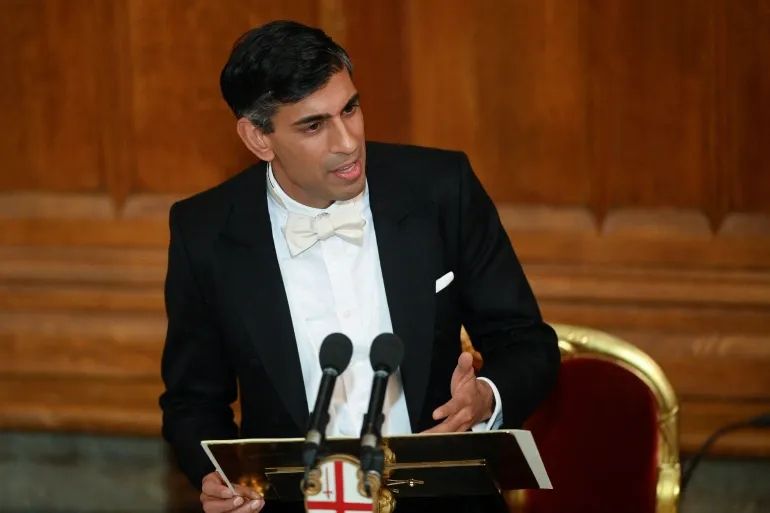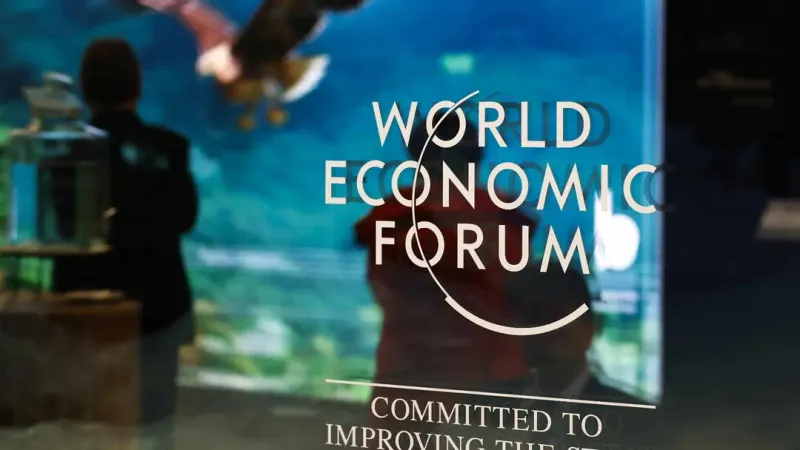British PM Sunak Says ‘Golden Era’ With China Over
In his first major foreign policy speech, British PM Rishi Sunak said on Monday that the so-called "golden era" of UK-China relations is over, and called the idea that trade would lead to social and political reform in China "naive."

Facts
- In his first major foreign policy speech, British PM Rishi Sunak said on Monday that the so-called "golden era" of UK-China relations is over, and called the idea that trade would lead to social and political reform in China "naive."
- Speaking at the Lord Mayor's Banquet in London, Sunak criticized Beijing's handling of protests against China's "zero covid" policy, which recently resulted in a British BBC journalist being detained and assaulted by the nation's police. While Sunak admitted that China's undeniable importance in global affairs couldn't be ignored, he said that Beijing still poses a "systematic challenge" to Britain's "values and interests."
- The leader of the Conservative Party pledged that the West would stand together amid increasing competition against China, and stressed that the UK's China policy includes steps to reduce the Britain's economic dependence on the global power. The UK has already banned Chinese company Huawei from using 5G mobile networks.
- The PM also said the UK would meet Beijing with "robust pragmatism," by strengthening ties with allies such as the US, Canada, Australia, and Japan. Sunak refrained from calling China a "threat," despite having claimed during the Conservative Party leadership contest in July, that the Asian economic power posed the "largest threat" to the UK and to global security and prosperity.
- More recently, Sunak has been criticized by conservative MPs for his less confrontational stance toward China, especially compared with his predecessor Liz Truss. As finance minister, he previously advocated a more balanced strategy toward China, including arguing for the addressing human rights concerns alongside the strengthening of economic ties.
- Referring to the broader Indo-Pacific region and the need to link trade and security, Sunak also used his speech to say that London was working on new long-term partnerships in defense, industry, and technology, including AUKUS with Australia and the US, and the Future Combat Air System (FCAS) involving Italy and Japan.
Sources: Guardian, BBC News, Financial Times, Independent, India Today, and Japan Times.
Narratives
- Pro-establishment narrative, as provided by Japan Times. Even though Sunak signaled the end of the "golden era" in relations with China, the UK's new PM refrained from taking an overly aggressive stance toward the country during his speech. He is well aware that the UK cannot afford to antagonize China given Britain's current economic crisis. Due to the situation at home, Sunak is more likely to focus on trade, economic stability, and domestic issues than ideology — the more pragmatic and effective option in an increasingly multipolar world.
- Establishment-critical narrative, as provided by Telegraph. Sunak's speech has confirmed that the PM is unwilling to take the necessary steps to tackle the entrenched influence of China within the UK. It seems that he mistakenly believes it is possible to appease Pres. Xi and the Chinese regime despite continuing rights abuses and the global alignment of Beijing with Moscow. This fence-straddling approach will only undermine Britain on the world stage and cast doubt on the UK's solidarity with Ukraine in the face of Russian aggression.






